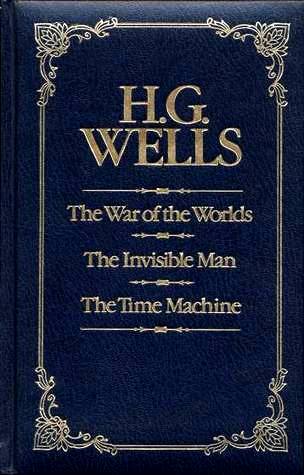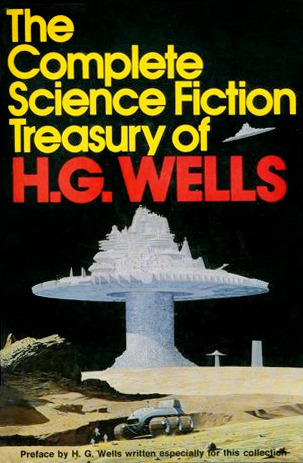
The War of the Worlds/The Invisible Man/The Time Machine
Book Description
What if the fabric of reality unraveled before your eyes? In a pulse-pounding journey across time and space, H.G. Wells weaves together three iconic tales of survival against insurmountable odds. From a Martian invasion that threatens humanity's existence to a scientist's haunting descent into madness and the mind-bending consequences of time travel, each story confronts man’s deepest fears and desires. As societies crumble and secrets are unveiled, will humanity rise to the challenge, or will they be consumed by their own creations? Step into the unknown—are you ready to face the unimaginable?
Quick Book Summary
This collection brings together three of H.G. Wells' most influential science fiction works: "The War of the Worlds," "The Invisible Man," and "The Time Machine." Each novel explores humanity’s confrontation with the unknown—be it alien invaders, the perils of unchecked scientific ambition, or the far-reaching consequences of technological progress. "The War of the Worlds" immerses readers in Earth's desperate struggle against a hostile Martian invasion. "The Invisible Man" follows a brilliant but tormented scientist whose pursuit of invisibility leads to madness and terror. "The Time Machine" ventures into the distant future, examining the fate of humanity in a changed world. Through these gripping stories, Wells probes humanity’s fears, aspirations, and the ethical dilemmas arising from scientific discovery.
Summary of Key Ideas
Table of Contents
The Consequences of Unchecked Science
Wells’ stories begin by challenging our understanding of science and progress. In "The War of the Worlds," humanity is blindsided by the advanced technology of Martian invaders, highlighting the peril of overconfidence in human supremacy. The story’s suspense and horror underscore how fragile civilization can be when confronted with forces beyond its imagining. Wells asks whether technological advancement always equates to mastery and control, or if it renders us vulnerable to unstoppable threats.
Survival in the Face of the Unknown
In "The Invisible Man," the narrative shifts to personal ambition. Griffin, a gifted scientist, unlocks the secret of invisibility, but the power corrupts and isolates him. His initial intentions turn sinister as his invisibility forces him outside the bounds of morality and society. By chronicling Griffin’s descent into madness, Wells examines how losing one’s humanity can be the true cost of unchecked scientific curiosity and social exclusion.
Societal Collapse and Transformation
"The Time Machine" takes science in a different direction—time travel. The Time Traveller journeys to the year 802,701 and finds a world divided between the gentle Eloi and the subterranean Morlocks. The future’s strange evolution critiques social inequality and the consequences of humanity’s present actions. The stark vision warns against complacency and abuses of power, showing how today’s choices can yield dystopian outcomes tomorrow.
The Limits and Dangers of Human Ambition
Each story grapples with the breakdown of societal order in the wake of extraordinary events. Whether from invasion, technological overreach, or evolutionary stagnation, Wells presents societies that collapse when their foundational beliefs are threatened. Individuals and communities are forced to confront their limitations and adapt—or perish—in the face of the unknown. These tales probe how crisis tests not only survival instincts but also ethical convictions.
Morality and Alienation
Ultimately, Wells’ trilogy is a profound exploration of human nature. Through alien invasion, invisible terror, and journeys across the aeons, he asks fundamental questions about ambition, ethics, and what binds—or separates—us as a species. The works reveal how advances meant to secure power or knowledge can also breed destruction and isolation. Yet within that struggle lies the hope that recognizing these dangers may inspire wisdom and resilience when confronting the unimaginable.
Download This Summary
Get a free PDF of this summary instantly — no email required.





